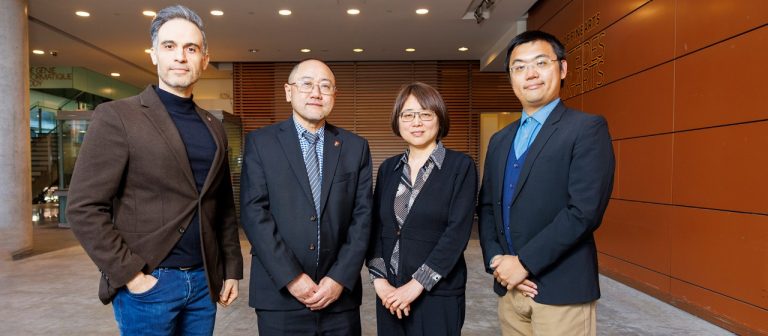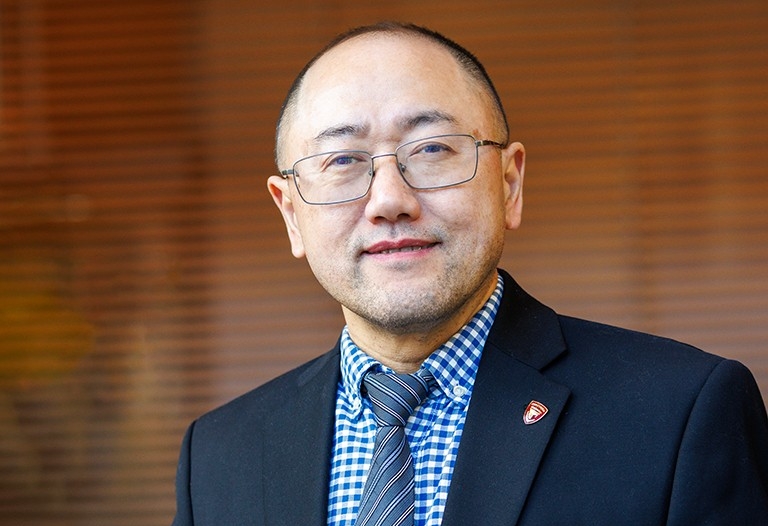Concordia’s Gina Cody School researchers awarded $1.7M to improve collaboration in the construction industry

As anyone living in Montreal can attest, the construction industry is often plagued by delays and conflicts. Many of these issues can be chalked up to a sector that often suffers from a fundamental lack of collaboration among key stakeholders like clients, architects, engineers, and contractors.
Yong Zeng, professor, associate director and co-op director of the Concordia Institute for Information Systems Engineering (CIISE), has received a $1.7 million grant over three years from the Natural Sciences and Engineering Research Council of Canada (NSERC) Alliance and Mitacs to address some of these issues.
Specifically, the grant is focused on refining a process in construction known as Requests for Information (RFIs). RFIs are essential tools in construction, used by stakeholders to identify and correct design issues, discrepancies and errors.
While they play a key role in assessing the health of a project and are valuable for resolving disputes, this project also intends to leverage RFIs as a pivot to foster collaborative behaviors.
Zeng is joined by his colleagues — Jun Yan, associate professor at CIISE, and Mazdak Nik Bakht, associate professor, and Hua Ge, professor, both from the Department of Building, Civil and Environmental Engineering. They will develop an RFI analytics engine.
The engine is part of a broader initiative that includes creating machine learning-based mechanisms to encourage stakeholder cooperation as well as a digital platform to aid in project management.
 Yong Zeng: “Our goal is to enhance risk management and efficiency within the construction sector.”
Yong Zeng: “Our goal is to enhance risk management and efficiency within the construction sector.”
Toward more efficient collaboration
“This project addresses some of the pressing challenges in the construction industry and aims to facilitate better communication, collaboration and project-management practices,” says Zeng. “Our goal is to enhance risk management and efficiency in project reporting within the construction sector.”
The project also includes collaboration with CREO Solutions, a Montreal-based company specializing in the management of building and infrastructure projects. CREO will incorporate the project findings into Storia, the company’s construction project planning software, enhancing it for more comprehensive and effective project management. This collaboration seeks to introduce gradual changes in construction practices, with a focus on transparency, accountability and efficiency through digital transformation.
“This project is a prime example of how our researchers at the Gina Cody School are dedicated to solving real-world problems,” says Emad Shihab, Associate Dean of Research and Innovation at the Gina Cody School. “It highlights our commitment to applying innovative research for practical solutions in industries critical to our economy.”
The project is called Evidence-based monitoring of construction projects through effective, reliable, and credible RFI analysis and management. It also serves as a platform for education and hands-on experience.
It will train a team of 18 highly qualified personnel, including one research associate, three postdoctoral fellows, five PhD students and nine Master of Applied Science students, giving them the opportunity to engage in interdisciplinary research and practices.
This project aims to bring more efficiency and transparency to the Canadian construction sector, which contributes around $151 billion annually to the national economy.
Check out the course offerings in Concordia’s Department of Building, Civil and Environmental Engineering.
Learn more about Concordia’s graduate programs in Quality Systems Engineering and Information System Security.
[Thumbnail image by Maxime Doré, via Unsplash.]




